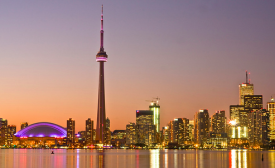propaganda
The United States discreetly supported the creation of a website and SMS service that was, basically, a Cuban version of Twitter, the Associated Press reported Thursday. ZunZuneo, as it was called, permitted Cubans to broadcast short text messages to each other. At its peak, ZunZuneo had 40,000 users.
For years, American outreach to Cuba came in many forms: mafiosos, poison-drenched wetsuits, toxic cigars. But today we learned of a new tactic in the campaign to undercut the Castro regime: a stealth effort by the U.S. government's humanitarian aid agency to create a Cuban version of Twitter.
In July 2010, Joe McSpedon, a US government official, flew to Barcelona to put the final touches on a secret plan to build a social media project aimed at undermining Cuba's communist government... Their mission: to launch a messaging network that could reach hundreds of thousands of Cubans.
The United States and the European Union have imposed sanctions on dozens of high-ranking Russians in retaliation for Moscow's seizure and annexation of Crimea. The idea, of course, is that imposing asset freezes and visa bans on these individuals will make them think twice when contemplating, say, further military moves against the rest of Ukraine.
Halfway through an otherwise coherent conversation with a Georgian lawyer last week—the topics included judges, the court system, the police—I was startled by a comment he made about his country’s former government, led by ex-president Mikheil Saakashvili. “They were LGBT,” he said, conspiratorially.
Russia invaded Ukraine over the weekend, justifying its incursion by claming it needed to protect Crimea’s ethnic Russian population from supposed neo-Nazi extremists. This was pure propaganda, of course—Vladmir Putin has been keen to annex land that used to be part of Russia, as he did in Georgia in 2008, and seems to think that the Ukrainian army will and should immediately surrender to the Russian one.
In Propaganda: Power and Persuasion, David Welch examines how states have informed and influenced individuals over the past century. Though propaganda is far from new, governments’ programming has become more pervasive than ever following the rise of the mass media. In this book, Welch traces this development and identifies propaganda’s most effective channels and tactics.

The 24/7 Olympic news cycle is consumed right now, and understandably, with security issues for the forthcoming Winter Games in Sochi. Then, too, there are the construction woes over the 2016 Summer Games in Rio de Janeiro, where the International Olympic Committee president, Thomas Bach, is paying a visit this week.
You had to be tuned in very, very carefully to hear the bolt that came Monday from Canada — even though it carries huge implications not just for the United States but for the race for the 2024 Summer Olympics.







